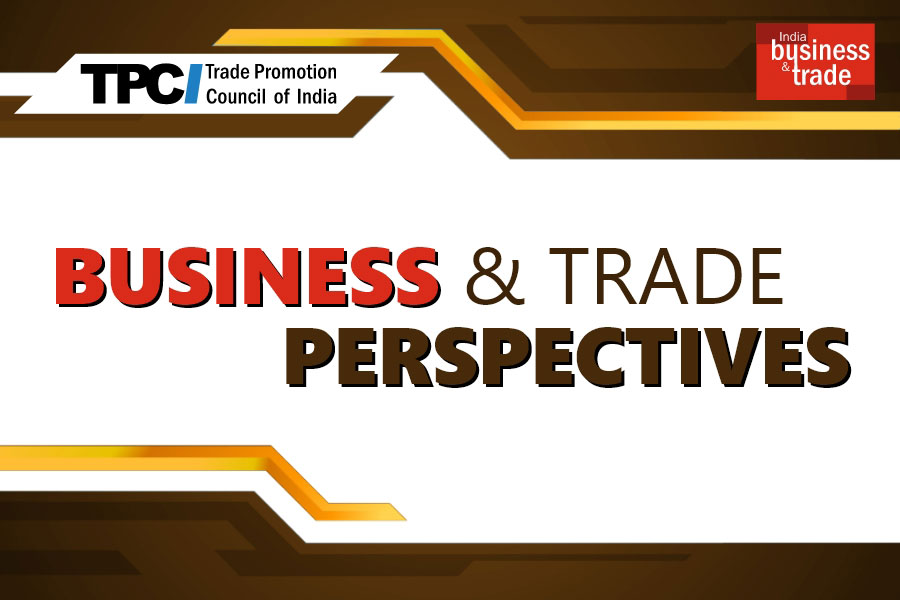“Metals and capital goods should be kept out of FTAs”
• Near zero or zero import duty rates provided to FTA partners have gone against the spirit of FTAs and hit India’s domestic industries.
• Anti-dumping, safeguard duties and withdrawal of GSP by USA are major challenges. Mounting NPAs and bad loans are compelling banks against extending loans to the metals industry.
• There should be a level playing field for all regions of the world and similar import duties should be paid by all the trading partners equally.
• Metals and capital goods should be kept out of the gamut of RCEP negotiations to avoid dumping of metals and capital goods from Korea & China.

Import duties are walls designed to protect interests of domestic manufacturers against stiff and unfair competition posed by the foreign manufacturers. However, near zero or zero import duty rates as provided to countries with whom FTAs have been signed have rather gone against the spirits of the FTAs and have hit India’s domestic industries – be it aluminium, steel or copper makers as well as capital goods manufactures.
For instance, in the case of steel, more than 50% (sometimes, up to 75%) of the domestic imports are met by imports from India’s FTA partners who have exemption from payment of import duties. In our view, there should be a level playing field for all regions of the world and similar import duties should be paid by all the trading partners equally and there needs to be a balance in trade in all fairness. If India is importing 100 kg of aluminium from a country, for instance, it should also be allowed to export at least 70 kg of aluminium to the same nation. This, however, does not happen most of the times. Such anomalous policies are creating a chain of other problems like NPAs with the banking sector, crippling the growth of Indian industry and the economy.
While there is a high cost of capital in India, with about 12% interest rate, the same in Japan is near zero and in South Korea, it’s below 6%. Added to this are the high logistical costs in India and the unfair competition created by the low prices of metals coming from FTA countries. The recent currency depreciation in South Korea has led to further drop in import prices into India, which will push Indian producers to match the lowest price. They will continue to bleed financially.
When it comes to the bottlenecks faced by Indian metal exporters, anti-dumping/safeguard duties/withdrawal of GSP by USA are major challenges. Depreciation of Indian rupee and lower cost of production can give us a profitable edge in markets of US & Europe. Our exports need to grow.
Another factor behind the demand and investment slowdown is that the government has not been able to uplift the share of the manufacturing sector in India’s GDP. Though the current government envisaged a 25% contribution by the manufacturing sector to India’s GDP by 2025, the growth has stagnated to 14-16%. If you look at our competitors like China and South Korea, manufacturing accounts for more than 40% of their GDP. As a result, a lot of their aluminium, steel, copper, etc. get consumed by industries in their own country, which is not the case in India.
Moreover, due to the stark rise in NPAs and bad loans, a number of banks in India are shying away from lending capital to Indian industry for new investments. They have also enforced credit limits. The downstream manufacturers have to compete on costs, which pushes them to source cheaper metals from overseas.
Production level has gone down too; the recent victim of this scenario being the automobile sector in India. Furthermore, many downstream end-product producers turn to inferior quality metals because of their lower costs. Thus, they are creating a problem for the primary metal producers. There needs to be a total ban on use of defective and non-standard products.
I believe that metals and capital goods should be removed from free trade agreements to ensure that our companies do not become NPAs due to low price offers as a consequence of near zero duty enjoyed by FTA countries. Unfortunately, the government hasn’t done much to help the industry. Our Make in India has failed due to FTA countries ruining our metals and capital goods sectors. In fact, it should take a cue from regions like US & Europe that are known for their quick and proactive steps to introduce safeguard/ protectionist policies.
In the context of Regional Comprehensive Economic Partnership (RCEP) too, I would strongly advocate that metal and capital goods should be kept out of the gamut of negotiations in order to avoid the dumping of metals and capital goods from South Korea & China.

Mr Yatinder Suri is an IIT Kharagpur alumnus who started his professional career with Tata Motors in 1975. Currently, Mr Suri is the MD & Country Head of Outokumpu India, which is the Indian subsidiary of Finnish Group Outokumpu – the oldest and largest manufacturer of stainless steel. He is also the Chairman of Process Plant and Machinery Association of India and is on the board/committees of various platforms like ISSDA, CII-Capital Goods , CII-Railways, CII-Steel and CII -Corrosion Management Committee, Chemtech Foundation etc. The views expressed in this column are his own.













Leave a comment